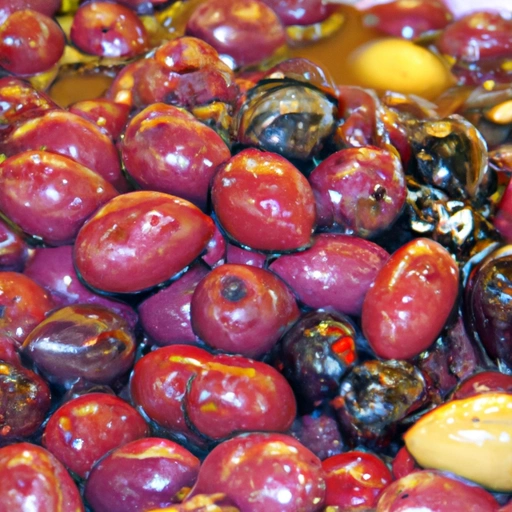Niçoise Olive
Description

The Niçoise olive is a small, richly flavored fruit cultivated primarily in the Alpes-Maritimes region near Nice, France. Known for its firm texture and a flavor profile that ranges from nutty to mildly bitter, this olive variety is often associated with Mediterranean cuisine and is a key ingredient in the famous salad that shares its name, Salade Niçoise.
Common uses
Niçoise olives are most commonly found in salads, particularly Salade Niçoise, but are also used as a garnish, a flavorful addition to tapenades, or served on their own as a snack or appetizer.
Nutritional value
Calories
Approximately 115 calories per 1 oz (28 g / about 14 olives).
Protein
Contains about 0.85 grams of protein per 1 oz serving.
Fat
Contains about 11 grams of fat per 1 oz serving, most of which is monounsaturated fat.
Carbohydrates
Approximately 3 grams of carbohydrates per 1 oz serving.
Vitamins
Contains vitamin E and small amounts of vitamin A.
Minerals
Rich in minerals like calcium, iron, and potassium.
Health benefits
Due to their content in healthy fats, particularly monounsaturated fat, Niçoise olives can contribute to heart health. The presence of antioxidants like vitamin E also helps protect against oxidative stress.
Potential risks
As with many olives, Niçoise olives are high in sodium, which can be a concern for individuals with high blood pressure or those monitoring their salt intake.
Common recipes
Used in Salade Niçoise, various types of tapenades, and as an accompaniment to charcuterie boards.
Cooking methods
Typically used as they come, either whole or pitted, but can also be chopped or sliced for recipes.
Pairing with other ingredients
Pairs well with fresh vegetables, tuna, anchovies, hard-boiled eggs, and crusty French bread.
Summary
The Niçoise olive is an indispensable part of Mediterranean cuisine, celebrated for its unique taste and texture. Whether used in the iconic Salade Niçoise, as part of a tapenade, or simply enjoyed on its own, this olive brings a touch of the French Riviera to dishes around the world. While providing some nutritional benefits, it's important to consume Niçoise olives in moderation due to their high sodium content.